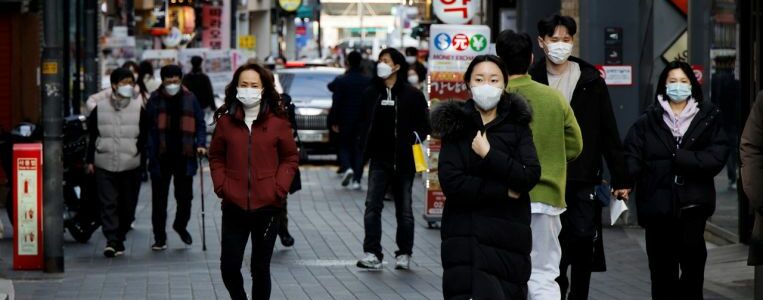
South Korea inflation accelerates to decade-high in November
SEOUL (BLOOMBERG) – South Korea’s inflation accelerated to the fastest pace since 2011, reinforcing concerns that strong price pressures will persist and bolstering the case for the central bank to raise interest rates further.
Consumer prices rose 3.7 per cent last month from a year earlier, the statistics office said on Thursday (Dec 2), exceeding all economists estimates. That extended the run of gains above the Bank of Korea’s (BOK) 2 per cent target to an eighth straight month, validating the central bank’s two rate hikes since August.
From a month earlier, South Korea’s consumer prices rose 0.4 per cent.
Core inflation, which excludes agriculture and oil prices, came in at 2.3 per cent from a year earlier.
The won appreciated 0.2 per cent versus the US dollar to 1,177.10 as at 9.39am in Seoul.
South Korea is among a growing cohort of economies struggling to contain prices. Accelerating inflation is a risk to South Korea’s recovery, threatening to undermine households’ spending power and erode corporate profits.
With inflation expectations also on the rise, BOK governor Lee Ju-yeol is concerned that the trend could set off demands for faster wage increases that may broaden pressures. Consumer prices last month were driven by higher oil and food costs, while services also ticked up amid loosened virus rules.
“Inflation will probably remain above 3 per cent until January,” said SK Securities economist An Young-jin. “We expect another rate hike by the BOK to 1.25 per cent in January, and another in July, though much would depend on the virus situation.”
A separate report from the BOK today showed the economy expanded 0.3 per cent in the third quarter from the April-June period, matching the initial estimate. The central bank said construction investment was scaled back from its earlier reading, but higher exports and private consumption left the overall outcome unchanged.
Omicron Variant
South Korea’s growth and price outlook is clouded by the global spread of the Omicron variant, with the nation confirming its first cases on Wednesday. The government has postponed a full reopening of the economy in response, and a worsening of the outbreak could weigh on consumption and services.
If the new strain were to trigger a renewed round of lockdowns worldwide, supply chain disruptions would only worsen and add to price pressures. The Finance Ministry said today that it expects inflation to moderate this month as a 20 per cent cut in fuel tax feeds through to consumer bills, but added that the new variant is a key uncertainty.
In a shift from its earlier view that price increases were transitory, the BOK last week raised its forecast inflation for next year to 2 per cent from 1.5 per cent, meaning it expects price gains to exceed, or at least hover around, the target through next year. The projection for this year was lifted to 2.3 per cent from 2.1 per cent.
Join ST’s Telegram channel here and get the latest breaking news delivered to you.
Source: Read Full Article